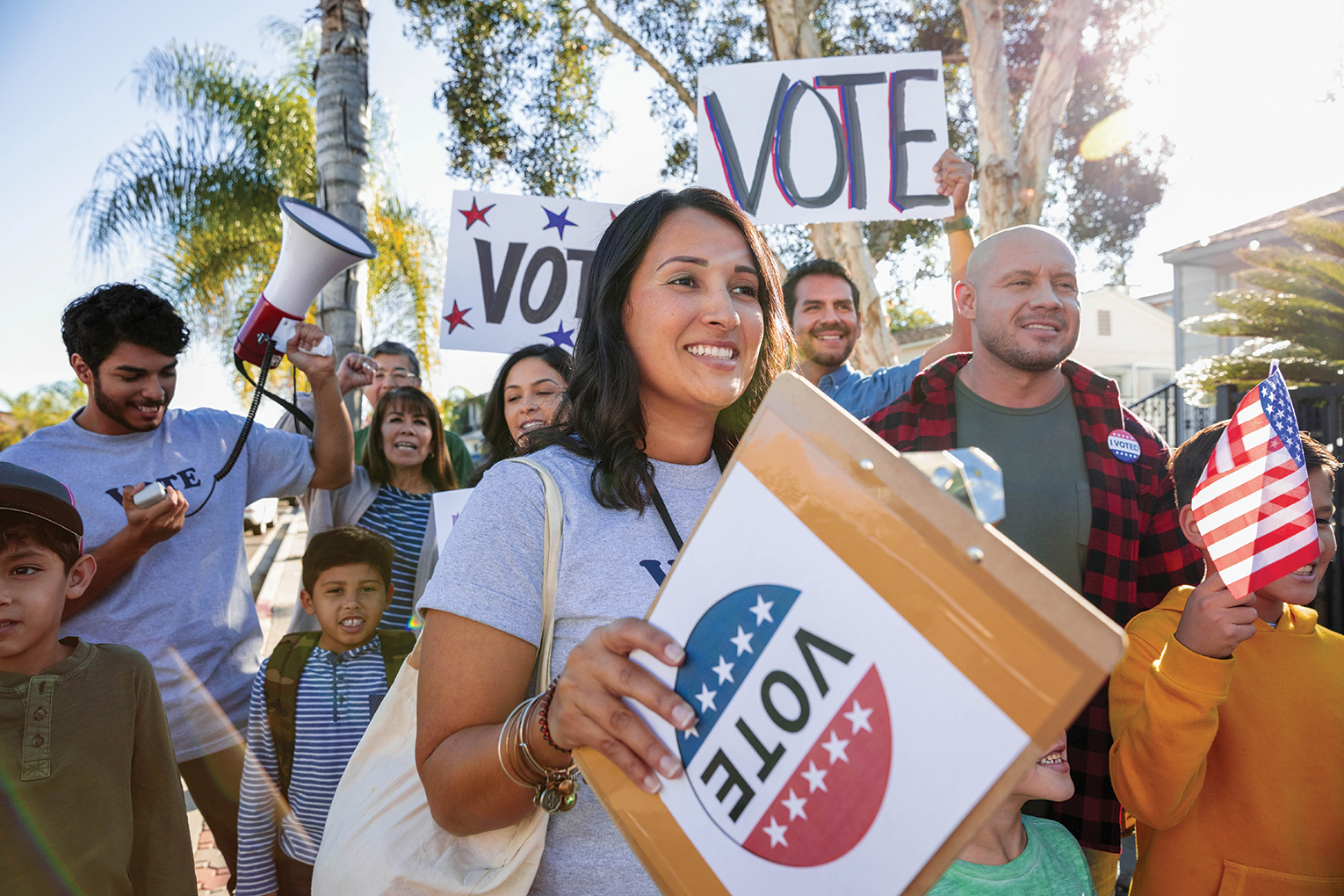On Jan. 18 women and their allies in San Diego and across the country marched in the fourth annual Women’s March, with the same mission of creating social change.
El Cajon resident Kenya Taylor was one of them. Taylor is currently running for County Board of Supervisors in District two and the co-chair for the Southeastern Live Well Center Health Workgroup, a member of the NAACP San Diego Branch Executive Committee and membership chair of the Black Women’s Institute for Leadership Development.
She said she first took part in the Women’s March in 2018 because the Women’s March mission to increase awareness for women’s issues, disability issues and civil rights issues closely aligned with her values.
“As a Black woman, for 400 years we’ve been talking about justice and equality for all and we’re still not where we need to be,” Taylor said.
She added that it’s important to go beyond the Women’s March, and create policies that reflect the inclusion of women and marginalized people.
“We’re in this together in San Diego County,” Taylor said.
Chula Vista resident Nadia Kean-Ayub also marched. As a local leader for San Diego’s Pantsuit nation chapter and a PFLAG board member, two organizations that Women’s March San Diego partnered with this year, she said this year WMSD has really made an effort to connect with people who are “boots on the ground” and actually doing the work in their communities.
Kean-Ayub participated in the Women’s March for the first time in 2017.
“I went to the original march. I was all by myself and I didn’t have a sign, I just knew that I was upset and I felt that something needed to be done and I was so grateful that a march was organized,” Kean-Ayub said.
Since attending the Women’s March for the first time, Kean-Ayub became vice president of the Eastlake/Bonita Democratic Club and joined the Chula Vista Human Relations Commission, two positions she says she felt empowered to take on after the Women’s March.
She attended the march again in 2018, but did not attend in 2019 after multiple original board members of the national Women’s March were repeatedly accused of anti-semitism in December 2018.
During September 2019, three board members, Bob Bland, Tamika Mallory and Linda Sarsour stepped down from their positions following the controversy.
Since it’s dawn, the Women’s March has also faced criticism for centering middle-class white, heterosexual women rather than amplifying marginalized voices of women of color, LGBTQ+ women and low-income women.
In Humboldt County, Women’s March organizers announced that they were going to cancel their 2019 march due to concerns it would be “overwhelmingly white” and lack crucial voices in the community, though they ended up rescheduling the march.
“Me as a marginalized woman as a Hispanic-Arab woman, I felt that for me to come back to the Women’s March I wanted to make sure it included intersectional feminism,” Kean-Ayub said.
Intersectionality is a term that was originally coined in 1989 by UCLA and Columbia law professor and civil rights expert Kimberlé Crenshaw to describe the ways that gender, race and class intersect and overlap.
In a paper for The University of Chicago Legal Forum, Crenshaw argues that Black women are sometimes excluded from feminist theory and antiracist politics because both are based on experiences that do not accurately reflect the interaction of race and gender.
“Because the intersectional experience is greater than the sum of racism and sexism, any analysis that does not take intersectionality into account cannot sufficiently address the particular manner in which Black women are subordinated,” Crenshaw wrote.
“Things that are being fought for can be different based on what community you come from, Black women have more issues than a white women. People who are cisgender gay are going to have different issues than trangender people and thats why intersectional feminism is important because it says we as women will stand up for all rights, not just the rights that benefit us, we will go beyond that,” Kean-Ayub said
Women’s March San Diego President Monica Boyle said intersectionality is important to the success of the Women’s March.
Boyle first marched in January 2017 and said she had such an inspiring day with likeminded people that she knew she needed to get involved with WMSD.
In July 2018, she was appointed WMSD President and said it’s important for the Women’s March to continue because of injustice that demands attention and activism.
“I think there are many things that continue to be at risk that require our attention, that includes reproductive rights, that includes environmental justice, civil rights, immigrant rights — many that this year’s march is focusing on,” Boyle said.
She added that the Women’s March has had a real impact on women getting elected and getting involved politically.
“I think we have had an influence on the number of women that have gotten engaged with political offices and actually been elected to political offices as a result of the Women’s March… we are still not at any level in which women in elected offices reflect our society,” Boyle said.
Though the increase in women in office can’t solely be attributed to the Women’s March, more women have taken office since its launch, with a record number of 117 women winning office during 2018 midterm elections, according to The New York Times.
Still, women make up only 23.7 percent of Congress and 28.9 percent of state legislators, according to the Center for American Women and Politics. And the proportion of women of color holding elective offices is even lower, with women of color making up just 8.8 percent of Congress and 7.3 percent of state legislation.














